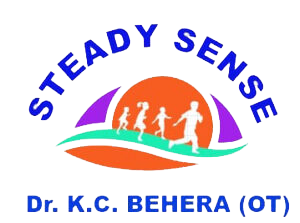Speech and Language Therapy (SLT)

Speech and Language Therapy (SLT)
Speech and Language Therapy (SLT) is a healthcare profession aimed at assessing, diagnosing, and treating individuals who experience speech, language, communication, or swallowing disorders. These challenges may arise due to a variety of causes, including developmental delays, neurological disorders, or physical impairments.
Speech and language therapists, often referred to as speech therapists or speech-language pathologists (SLPs), work with individuals of all ages—from infants to the elderly—to improve their ability to communicate effectively or manage swallowing difficulties. SLT enhances an individual’s quality of life by supporting social interaction, learning, and independence.
What Does a Speech and Language Therapist Do?
A speech therapist begins by assessing a person’s communication skills or swallowing abilities. This assessment includes understanding the individual’s medical history, observing behaviors, and conducting specialized tests. The therapist evaluates areas such as:
- Speech clarity (articulation)
- Language comprehension and expression
- Voice quality and fluency (including stuttering)
- Social communication (such as interacting with others appropriately)
- Swallowing functions (for those with dysphagia)
After the evaluation, the therapist develops a personalized therapy plan designed to meet the specific needs of the individual. This plan often includes exercises, strategies, and techniques to improve communication or manage swallowing issues.
Common Areas Speech Therapy Covers:
- Speech Articulation: Helping individuals pronounce words more clearly to improve speech intelligibility.
- Language Development: Assisting children with developmental language delays or adults recovering from brain injuries or strokes in understanding and using language more effectively.
- Voice Therapy: Helping individuals with voice disorders, such as hoarseness or loss of vocal quality, by teaching techniques to improve vocal control.
- Fluency (Stuttering): Working with individuals who stutter to increase fluency and manage anxiety related to speaking.
- Swallowing Therapy (Dysphagia): Addressing issues with swallowing, ensuring individuals can eat and drink safely without risk of choking or aspiration.
- Social Communication Skills: Improving pragmatic language skills for individuals with autism or other social communication disorders to help them navigate social interactions.
Benefits of Speech and Language Therapy:
- Improved Communication: Therapy enhances a person’s ability to express their thoughts, needs, and emotions, leading to better social and professional interactions.
- Increased Confidence: With improved speech and language skills, individuals often experience a boost in self-esteem and social confidence.
- Enhanced Learning: For children, improving language skills can lead to better academic performance and learning experiences.
- Swallowing Safety: Therapy for swallowing disorders ensures that individuals can eat and drink safely, which is critical for their health and well-being.
Speech and language therapy is not limited to addressing only physical communication problems but also helps with cognitive-communication disorders, such as problems with memory, attention, or problem-solving skills that impact communication.
In collaboration with other healthcare professionals and educators, speech and language therapists provide valuable support in helping individuals lead fuller, more independent lives.
Related Doctors
Who Might Need OT
- Development Delays
- Difficult with Gross Motor Skills
- Issues with Fine Motor Skills
- Trouble with Visual Processing
- Trouble with Sensory Processing
Contact Us
- 109/24 Hazra Road, Kolkata-700026
- 7978956493/ 7873424695
- aoprc2022@gmail.com



